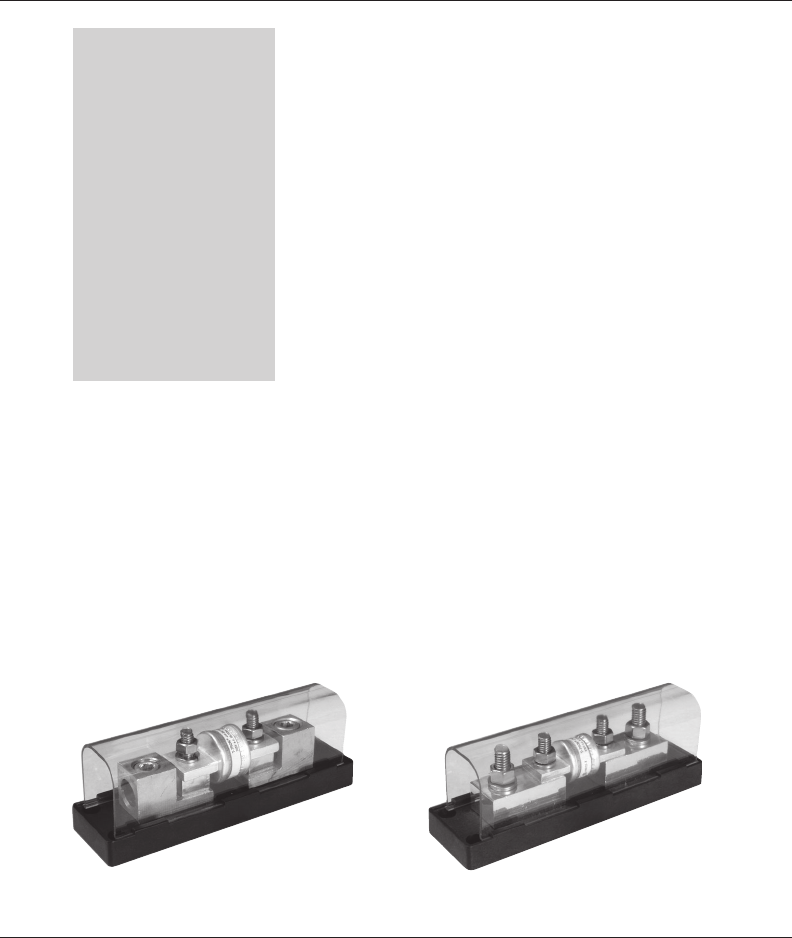
©2002 Xantrex Technology Inc. All Rights Reserved
P/N 973-0019-01-02 Rev A 06/2002
5
Introduction
The Trace™ brand fuse block (TFB) protects the power
system’s DC wiring should an overcurrent condition
occur. The fuse block is placed between the battery’s
ungrounded conductor (usually the positive cable) and
the DC input terminal of the inverter.
The TFBs include a fast acting, current limiting class-T
fuse providing extremely fast protection when a short
circuit occurs. When the fuse is properly matched to the
system current, its time delay allows the inverter to
surge to full power without blowing the fuse. A plastic
cover prevents accidental short circuits to the fuse
terminals. Fuse sizes include 110, 200, 300, 350 and
400 amps.
There are two types of fuse blocks available. The
TFBxxxC fuse block has “set” screw lugs for cables with
no terminal connector’s on the ends (hereto referred to
as C-type battery cables). The TFBxxx fuse block has
stainless steel bolt connections for cables with ring
terminals (hereto referred to as ring-lugged battery
cables). Both fuse blocks include a black polycarbonate,
fiberglass reinforced base and a clear polycarbonate
snap-on cover.
Tools/Materials Required
• 4 screws (type depending on mounting material)
• 5/16 inch allen wrench (for C-type fuse blocks only)
• 9/16 inch socket for 3/8" hex nuts
• 1/2 inch socket for 5/16" hex nuts
• assorted screwdrivers
• knife
Figure 1
Fuse Block for C-type
Battery Cables (TFBxxxC)
Figure 1a
Fuse Block for Ring-lugged
Battery Cables (TFBxxx)
NOTE: These fuse
blocks meet the
National
Electrical Code
requirements for
overcurrent
protection.
Xantrex offers
the DC175 and
DC250 in an
enclosure for
applications
requiring NEC
compliance for
both overcurrent
protection and a
DC disconnect.


















